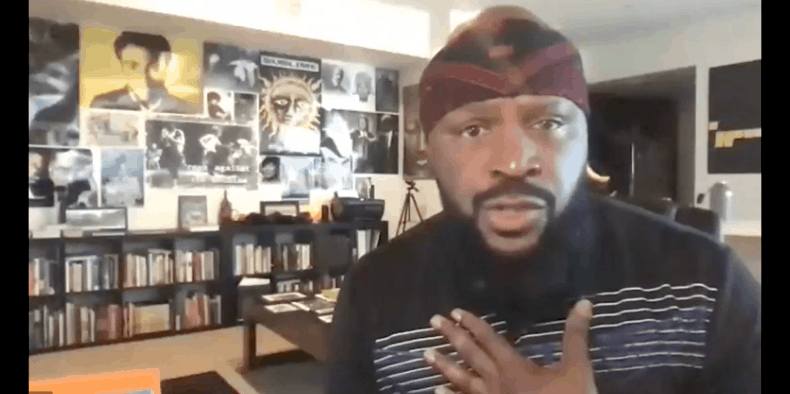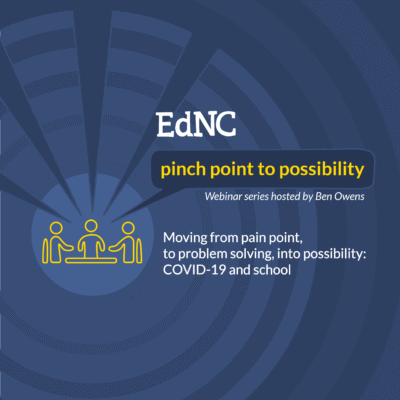
On May 28, A New Way Forward: Building a Learner-Centered Future brought educators, parents, and students together in a virtual global summit to discuss innovative ways to think about learning.
Learner-centered education is “a system of education that recognizes and values young people as unique and whole human beings with the agency to chart and live out their distinct journey of learning.”
Kaleb Rashad, director of creative leadership at the High Tech High Graduate School of Education, said during his keynote speech that every student has a different background.
“It is sometimes difficult to look forward, particularly when you have community members suffering today,” Rashad said. “When I think about why I do this work, I think learner-centered is an important piece of this. Every learner comes from a place. They come from a context.”
Learner-centered education means shifting away from standardized, one-size-fits-all learning — and recognizing the killings of George Floyd, Ahmaud Arbery, and other black Americans as part of the context that learners bring along to the classroom.
Citing racial theory work by Eduardo Bonilla-Silva, James B. Duke Distinguished Professor of Sociology at Duke University, Rashad said segregation is still an issue today.
“I think a push we need to be thinking more about is how do we develop a public? How do we develop the democratic muscles of folks — being able to live together with yourself, with a sense of integrity, coherence, and dignity, and decency, and how do we live with other people, and then how do we care for this mother earth?” he said.
Rashad said his purpose in this work is to lead with a sense of humility, modesty, listening to others, and caring for his community.
“If we’re just trying design for learning, design for innovation, design for creativity — we can develop people who are innovative and creative and heartless,” he said. “And where will that get us?”
Sign up for the EdWeekly, a Friday roundup of the most important education news of the week.
‘How to get all children access to information that some children had access to anytime, anywhere’
“Kaleb talked a lot about equity,” said Lynn Moody, superintendent of Rowan-Salisbury School System. “I think all of America now sees how inequitable things are across our schools.”
Moody said her district has been focusing on equity for years by trying to get students access to information beyond the classroom, which is influential for students.
“We talked about all children, and how to get all children access to information that some children had access to anytime, anywhere,” Moody said. “Those outside learning experiences are often more powerful than their inside learning experiences.”
As COVID-19 disrupts the education of millions, responding to students beyond the classroom is front-of-mind for many educators.
“I believe we must turn to educating all young people for work, learning, and citizenship in the innovation era,” said Tony Wagner, senior research fellow at the Learning Policy Institute. “But I don’t want to talk about that now. There is a much more immediate concern that I have. And that is: How do we respond to our children today who are in crisis?”
In a breakout session, Michelle Rainey, principal of Da Vinci Connect, and Kaitlin Toon, assistant principal of Da Vinci Connect, addressed how to respond to learners who are facing uncertainty.
“How can we put ourselves in their shoes?” Rainey asked. “Education needs to shift and I’ve wondered for a few years — what will it take for broad reformation to happen in our country?”
Rainey said to do this, educators must think about new teaching methods and tools to understand students. Toon said this involves maintaining an agile mindset and viewing parents as educators.
Rashad stressed the importance of collectively building a learner-centered education system.
“It is not just who you are, who you might be becoming — it’s how you are relating to others,” he said. “That’s why I do this work. I do it for the people who have come before me.”
Wagner said the next step in establishing a learner-centered framework is to launch a campaign that lifts up a vision of what learning could be collectively.
“I think this is an opportunity for us to really declare our own values and aspirations and goals,” he said.
Recommended reading

